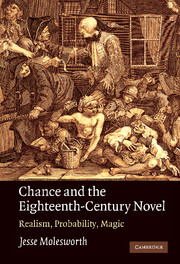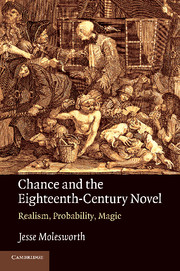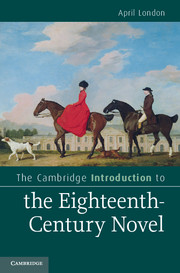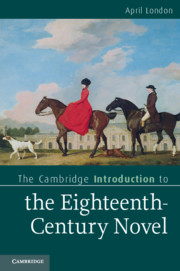Getting Lost in the Novel
Instances abound in eighteenth- and nineteenth-century novels where characters, particularly female characters, become lost, often moved by overwhelming emotion. Amanda Auerbach delves into the impact of these scenes on the character and the reader. On one level, 'getting lost' can realign a character's and our own sense of self and of social situation, while more broadly these instances reflect arcs within the overall narrative, highlighting easily-missed elements, sometimes even reflecting on our own experiences while reading. The emotions that move characters most powerfully often relate to their psychological needs, which the social conditions of their lives prevent them from meeting or fully acknowledging. These episodes appear across multiple novels in multiple subgenres, including the marriage plot, the gothic novel, the Victorian bildungsroman, and the sensation novel. These episodes collectively reveal how eighteenth- and nineteenth-century British novelistic subgenres developed to help women and working-class readers covertly satisfy their psychological needs.
- Identifies a formerly unremarked type of literary episode through which novels self-consciously reflect on subgenre, providing original insight into how authors in the eighteenth and nineteenth centuries thought about subgenre distinctions
- Provides an account of the psychological needs that drew historical readers to eighteenth- and nineteenth-century British subgenres, inviting compelling connections between readers of the past and of the present
- Explains the novel's development as a product of women's evolving, collective concerns, telling new stories about how historical subgenre novels written mostly by women communicate with one another across time
Reviews & endorsements
‘Provoking in the best senses of the term, Getting Lost in the Novel is bound to prompt argument and further discussion – which is what a good work of criticism aims to do, especially when the issues involved are as vital as the ones Auerbach takes up. This is exciting and original work.' Stephen Arata, Professor of English, University of Virginia
‘Auerbach reads with a degree of emotional intuition and sensitivity that is surprisingly rare in our discipline. Getting Lost in the Novel covers an astonishing range of genres, authors and scholars, showing that eighteenth- and nineteenth-century novels not only register desires that women were unable to express, but also served as a private means by which readers could satisfy or at least begin to recognize those desires in themselves.' Elaine Auyoung, Associate Professor of English, University of Minnesota
Product details
August 2025Hardback
9781009585514
187 pages
228 × 152 mm
Not yet published - available from August 2025
Table of Contents
- Introduction
- Part I. 'Psychological' Subgenres:
- 1. Ending up alone with a man in the eighteenth-century marriage-plot Novel
- 2. Getting carried away in the Victorian bildungsroman
- Part II. Popular Subgenres:
- 3. Absorption and the satisfactions of competence in the gothic novel
- 4. Mood management in sensation fiction
- Conclusion: the limitations and privilege of lostness
- Works cited
- Index.






